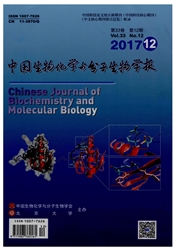

 中文摘要:
中文摘要:
肝细胞癌(hepatocellular carcinoma,HCC)是我国最常见的恶性肿瘤之一,而HBV慢性感染是肝癌发生的主要原因.乙型肝炎病毒(HBV)中X基因编码的一种多功能蛋白(HBx),参与众多重要生物学过程的调控,并促进肝细胞癌的发生.早期研究表明,HBx在HCC发生过程中发挥重要的调控功能,但其确切分子机制尚未完全明确.近几年,HBx参与生物学过程的分子机制研究有了较快的进展.有趣的是,研究发现,HBx在不同的细胞系以及HBV感染的不同阶段发挥促抑凋亡的双重作用,HBx还参与细胞自噬的调控.此外,在HBx参与细胞增殖及肿瘤侵袭和转移等方面,也产生了一些新的认识.本文将从HBx对肝细胞凋亡、自噬和增殖的调控及其对肝癌细胞转移和侵袭的调控等方面,对HBx参与肝细胞癌发生发展调控机制做一综述.
 英文摘要:
英文摘要:
Hepatocellular carcinoma (HCC) is one of the most common cancers in China. The chronicinfection of HBV is one of the main causes of HCC. A muhifunctional protein (HBx) encoded by the X gene of hepatitis B virus (HBV), is involved in a variety of biological processes and can promote the genesis of HCC. Although HBx has been known as an important regulatory protein during the genesis of HCC, but the detailed molecular mechanism is not clear completely. In recent years, there have been significant advancements in the molecular mechanisms for HBx promoting HCC. Interestingly, HBx can promote and inhibit apoptosis at different cell line or different stages of HBV infection. To understand this important issue, this review describes the new insights about HBx related HCC driver genes, therapy targets, and the molecular mechanisms for three basic cellular processes, including apoptosis/autophagy, cell proliferation and tumor metastasis/invasion
 同期刊论文项目
同期刊论文项目
 同项目期刊论文
同项目期刊论文
 期刊信息
期刊信息
